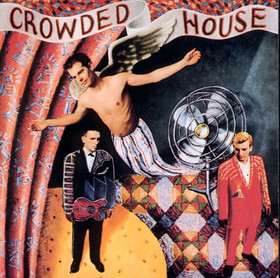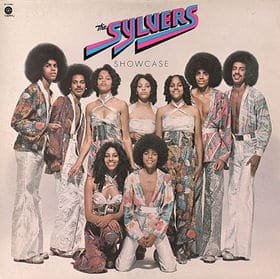Though I’m sure he’s done okay for himself as a novelist, I’ve always believed that deep down inside, Stephen King really always dreamed of being a rock star. Or barring that – there is, after all, the matter of his looks – a rockin’ rollin’ DJ in the 50s mode, when local DJs were bigger rock stars than the rock stars themselves. When I was in junior high and high school, I spent a lot of time reading Stephen King’s books and one of the things I remember loving – in fact, the one thing that drew me to his books long after the stories themselves ceased to interest me was the way he worked music into them. (I loved a lot of Robert Cormier’s books for the same reason – he introduced me to the Stones’ “19th Nervous Breakdown” via his novel I Am the Cheese, at a time when those old British fogies were bogged down in crud like “One Hit to the Body” and nothing could seem less cool than a Rolling Stones song to a 10-year-old whose musical memory ended somewhere between Andy Gibb and Captain & Tennille.)
A lot of times, King’s inner DJ came out in the epigram (or three) at the beginning of each book (and maybe each chapter of the book too) – a stanza from Dylan, a couplet from CCR, etc. But Stephen King was also never above letting his characters give his inner record critic a voice. And it was a critic of the old school “rockist” variety. I can’t remember exactly which book it is (The Tommyknockers?), but I remember feeling awfully put out when one of his characters thought to himself, upon hearing T. Rex’s “Bang A Gong”, that Marc Bolan was better off dead in a world where the Power Station could cover his glam rock anthem.
Yesterday, the Syfy Channel devoted its entire programming schedule to movies (or rather, made-for-TV miniseries) adapted from Stephen King stories, and I am sad to report that I spent very nearly 8 hours (interrupted only by a quick trip to Pizza Hut) watching “The Stand”, an epic in four two-hour parts starring Rob Lowe as a deaf mute, Gary Sinise as a reluctant prophet, and Molly Ringwald as a Mary figure – hers is not a virgin pregnancy, but the baby’s father was killed in a massive superflu plague that wiped out most all of humanity. Like the massive 1978 novel it was based on (made even massiver when a “complete and uncut edition” was published 12 years later), the miniseries is a pulpy vision of an apocalyptic showdown between good and evil in the Great American West, with the devil (incarnate as a man called Randall Flagg) setting up shop in Las Vegas (surprise!) and the righteous, led by a mystical, 106-year-old black woman who plays guitar and sings hymns on her porch (didn’t see that one coming, did you?) flocking to a land of milk and honey called Boulder, Colorado.Stephen King wrote the tele-play for the series and there are times when I wonder if he was being intentionally unintentionally hilarious with the dialog. Bill Fagerbakke (better known to folks my age as that big dimwitted Dauber from Coach, and to the kids of folks my age as the voice of Patrick Star) gets the best worst line when, playing to type as simpleton-with-a-heart-of-gold Tom Cullen, he laments (I’m paraphrasing), “I hate being a retard.” Several times, I got the feeling that this movie would be so much more fun if I could watch it in the same room with Sarah Palin. Stephen King even makes a cameo!
And then I noticed that Stephen King’s inner rock critic also makes a cameo. In the opening scene of the second part, we see Mother Molly Ringwald listening to Crowded House’s “Don’t Dream It’s Over” on a turntable. Meanwhile, another one of his heroes is Larry Underwood, an aspiring musician who carries a guitar on his back. In one scene, he sits on the hood of a car singing 60s folkie Barry McGuire’s “Eve of Destruction” while Des Moines burns in the background. On the other hand, here’s one Harold Lauder, an insecure nerd (and unwitting minion of Satan – you can tell by his studded leather jacket) who’s never recovered from high school, plotting a terrorist attack on the “Free Zone” to exact revenge on Molly Ringwald for rejecting his affections in favor of Gary Sinise. And what’s Harold playing (on a cassette, no less!) while he’s building his bomb in the basement? The Sylvers’ “Boogie Fever”. The message of the movie couldn’t be clearer! Acoustic folk rock singer-songwriters, good. Disco: evil. Whoever said that rock n’ roll is the devil’s music?Then again, the message gets muddy during the climactic final battle between the forces of good and evil. Larry Underwood, one of three emissaries from the Free Zone sent to represent in the final battle against Randall Flagg in Las Vegas, is first arrested, and then besieged by a bloodthirsty mob. At one point, one of Flagg’s henchman confiscates Larry’s guitar and smashes it to bits, shouting “Disco is dead!”


